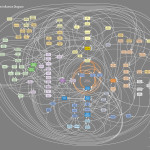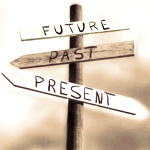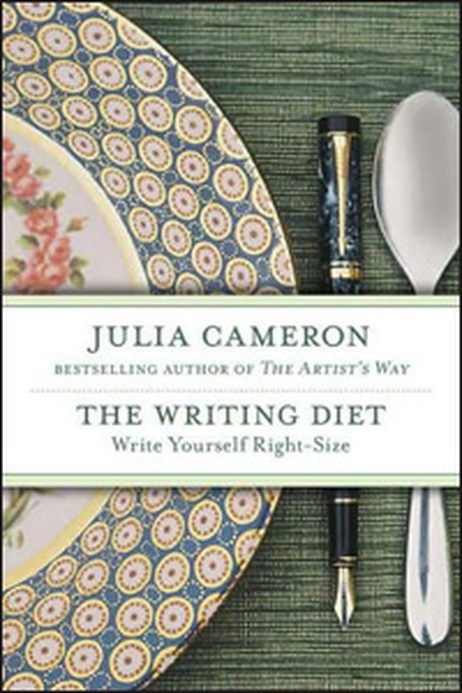
“Look at the birds of the air; they do not sow or reap or store away in barns, and yet your heavenly Father feeds them. Are you not much more valuable than they? Can any one of you by worrying add a single hour to your life[e]?
So do not worry, saying, ‘What shall we eat?’ or ‘What shall we drink?’ or ‘What shall we wear?’ For the pagans run after all these things, and your heavenly Father knows that you need them. But seek first his kingdom and his righteousness, and all these things will be given to you as well.” Matthew 6
So Jesus advises his listeners–fishermen who had worked all night
and caught nothing, unemployed labourers, and those without food
for their guests—not to worry about what they were going to eat.
And when Jesus speaks, that man who visited from a world
beyond our world, to share the deep secrets of life and the
universe, we would be wise to listen up.
Jesus tells his original listeners that, by an effort of will, they must quit
wasting time and energy fretting about what they would eat, must
quit worrying about money, and instead trust the God who sustains
singing birds who never save a single worm. They must ask, seek and
knock on God’s door for wisdom and good ideas to meet their daily needs.
Of course, today, with an obesogenic food environment
and an obesity epidemic, we worry just as much about the sugary
fatty, ultra-processed foods everywhere, which lead to weight gain,
society’s condemnation, and our self-condemnation–pressure
which leads to further overeating. Having lost 82 pounds, I know
the difficulty of shedding weight and the fear of regaining it.
But we, like Jesus’s listeners, must refuse to worry about fattening
food, weight loss, and weight regain, but instead, live as God’s beloved
children, eating what our hosts set before us, without fuss,
as Jesus advised his disciples, and trusting our health to God.
Of course, Jesus does want us to reflect his “endless energy, boundless
strength” in Eugene Peterson’s phrase, and, being kind and practical,
he gives us strategies. Jesus recommends fasting, which brings a reward
from God and gives us power over oppressive forces of evil. Fasting
is sheer Jesus-genius, skipping a meal, saving time and money while
burning up metabolically active, inflammatory, toxin-storing fat which
overweight bodies don’t need. Hunger pangs which are temporary waves,
rising, receding, passing, are an internal bodily reminder, a trigger
and an alarm clock to pray about our worries. And the force
and power of persistent prayer slowly changes our lives.
Do not worry, Jesus says, but seek first God’s kingdom and his
righteousness, and all the things the pagans run after will
be added to you. How does that work in the area of weight and health?
Well, the greatest commandment, Jesus says, is to love God with all
one’s strength. I have been incorporating movement into my spiritual
life, praying, and listening to the Bible and the book for my Christian
book group on my morning walk. And when my body buzzes
with endorphins, my mind and emotions work better, and my spirit soars.
And then Jesus says: the second commandment is like the first-
Love your neighbour as yourself. I’m trying to use movement
to bless others, too, decluttering my house of unnecessary acquisitions
from 33 years of marriage, working on my large garden to make it
a place of joy and hospitality, hanging out with friends during long
walks rather than over meals, and getting my body a little stronger
and fitter for life through “exercise snacks:” several daily
mini-sessions of yoga, weights, HIIT, dance, or rebounding.
The Father feeds the birds, which, like all wild creatures, instinctively
only eat what is a blessing to their little bodies. Seeking the kingdom,
acting as if Jesus were our visible beloved King, is refusing to eat a curse
on ourselves by eating food we know will not bless our bodies, but instead
slow them down by weight gain. For me, it’s sugar, wheat, rice, grains,
potatoes. We each have a unique metabolism created by genetics, our
biography, and our psychological makeup, and so we must ask the Spirit
to guide our minds and intuitions to a way of eating which blesses our bodies.
Seeking to establish God’s micro-kingdom in our own lives also means
getting our bodies fit enough to do the work God has given us to do.
Losing weight, getting fit, is like a conversion experience, completely
life-changing. As we bear this micro-cross of self-discipline without
which, Jesus said, we are not worthy of him, let’s pray we experience
the paradox he spoke of–that the yoke of following him is oddly
easy and light. May it be so. Amen.
This is a meditation on Matthew, Chapter 6
I would love you to read my memoir, fruit of much “blood, sweat, toil and tears.”
Rosaries, Reading, Secrets: A Catholic Childhood in India in the UK, and in the US, here, well, and widely available, online, worldwide 🙂
If you’d like to follow these meditations the moment they appear, please subscribe to Christian Meditation with Anita Mathias at Apple Podcasts, Spotify or
or Audible.
And I would be grateful for reviews and ratings!!
If you’d like to read my previous recorded meditations,
8. Happy Are the Merciful for They Shall Be Shown Mercy
7 The Power of Christ’s Resurrection. For Us. Today
6 Each Individual’s Unique and Transforming Call and Vocation
5 Change Your Life by Changing Your Thoughts
4 Do not be Afraid–But be as Wise as a Serpent
3 Our Failures are the Cracks Through Which God’s Power Enters our Lives
2 The World is full of the Glory of God
1 Mindfulness is Remembering the Presence of Christ with us.
Thank you 🙂












 Dr. Barbara Fredrickson in her book
Dr. Barbara Fredrickson in her book 